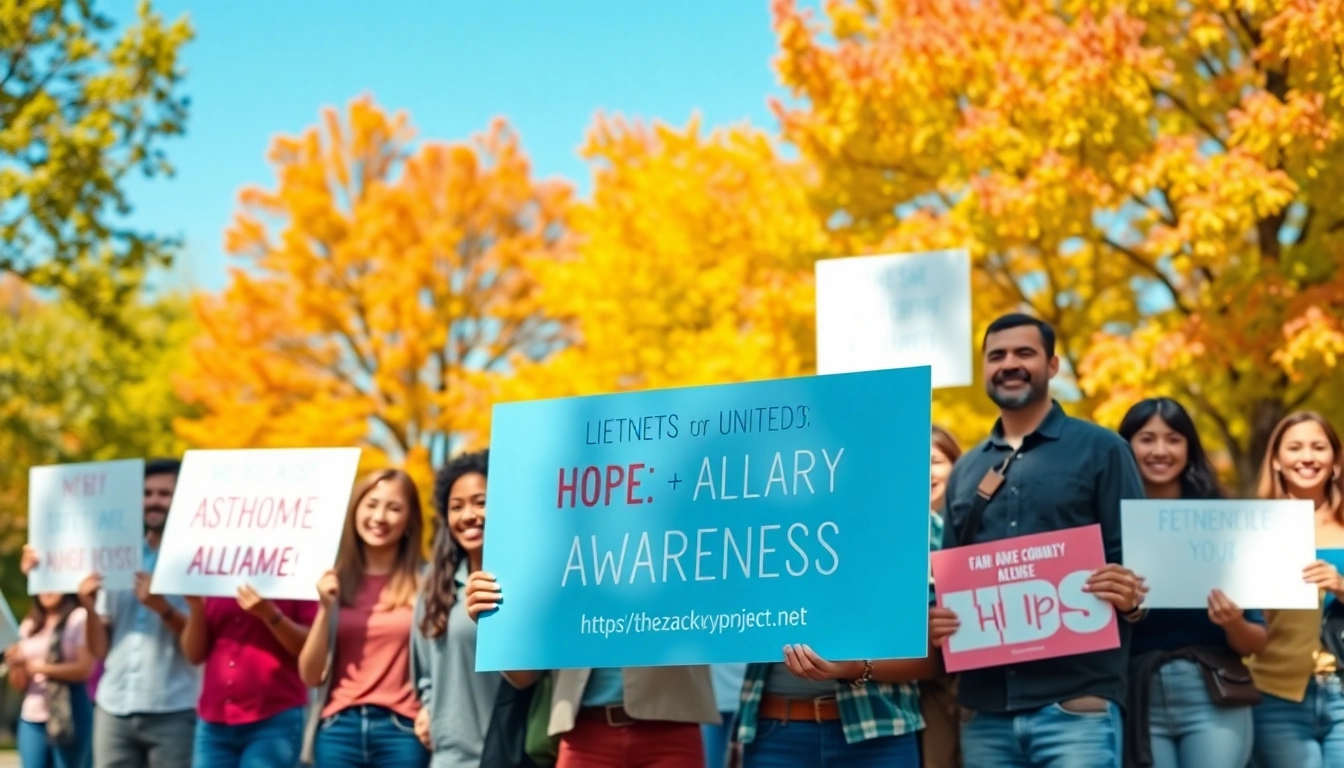Understanding Allergies and Asthma
What Are Allergies and Asthma?
Allergies and asthma are two interconnected healthcare challenges affecting millions of individuals worldwide. An allergy occurs when the immune system overreacts to a substance, commonly referred to as an allergen, causing various symptoms ranging from mild irritations to severe reactions. Common allergens include pollen, pet dander, mold, and food substances such as peanuts and shellfish. Asthma, on the other hand, is a chronic respiratory condition characterized by inflammation and narrowing of the airways, leading to difficulty in breathing, wheezing, and coughing.
Both conditions often coexist, where individuals with allergies are more susceptible to asthma. Understanding these medical issues is critical for effective management and treatment. Additionally, early detection and intervention play significant roles in improving the quality of life for those affected.
Common Triggers and Symptoms
Identifying triggers is vital in managing allergies and asthma. Common triggers may include:
- Environmental allergens (pollen, dust mites, pet dander)
- Food allergens (nuts, shellfish, dairy products)
- Smoke and air pollution
- Strong odors (fragrances, cleaning agents)
The symptoms can vary significantly, with mild allergic reactions presenting as sneezing, itchy eyes, or skin rashes. In contrast, severe reactions can lead to anaphylaxis, which is life-threatening and requires immediate medical attention. For persons with asthma, symptoms can escalate to shortness of breath during physical activities or exposure to allergens, even causing asthma attacks that necessitate urgent care.
The Impact of Allergies and Asthma on Lives
Allergies and asthma can profoundly affect daily living. Individuals may experience restrictions in their activities, such as avoiding particular foods, staying indoors during pollen season, or carrying emergency medication at all times. The psychological toll of living with these conditions can lead to anxiety or depression, particularly if one has experienced severe allergic reactions or asthma exacerbations.
Moreover, the overall cost of treatment, including medications and medical consultations, can become burdensome on families. This economic strain, combined with the physical and emotional challenges, underscores the importance of initiatives aimed at health advocacy and awareness, such as those led by organizations like the Zacky Project, which works diligently towards improving outcomes for individuals with asthma and allergic diseases. You can find more about this advocacy at https://thezackyproject.net.
The Role of The Zacky Project in Health Advocacy
Mission and Vision of https://thezackyproject.net
The Zacky Project is dedicated to advocating for the health interests of individuals with asthma and allergies. The organization’s mission encompasses raising awareness, providing resources, and fostering community engagement amongst those affected.
Its vision reflects a world where individuals can live freely without the constant burden of allergies and asthma. By promoting accessible healthcare, the Zacky Project partners with schools, policymakers, and community groups to enlighten the public about these conditions and significantly engages in efforts to reduce stigmas associated with them.
Key Initiatives and Campaigns
The Zacky Project has launched several initiatives that focus on education, outreach, and advocacy. Some cornerstone campaigns include:
- Awareness Campaigns: These campaigns utilize social media, workshops, and local events to inform communities about allergens and asthma triggers.
- Educational Resources: Offering workshops, seminars, and online materials aimed at educating families about managing allergies and asthma effectively.
- Support Networks: Establishing community support groups that foster connections among individuals and families dealing with similar challenges, promoting emotional support and practical advice.
Collaborations with Healthcare Professionals
The Zacky Project recognizes that effective advocacy extends beyond community engagement. It collaborates with healthcare professionals to ensure that evidence-based practices guide its initiatives. These partnerships enable the organization to:
- Disseminate reliable medical information about allergies and asthma management.
- Host educational events featuring specialists who provide insights on diagnosing and treating these conditions.
- Advocate for policy changes that improve healthcare access for underserved populations.
Such collaborative approaches are helping reframe the discourse surrounding allergy and asthma care, establishing integrated strategies that not only address immediate concerns but also promote long-term resilience for affected individuals.
Community Engagement and Resources
How to Get Involved with Advocacy Efforts
Community involvement is pivotal in advancing the mission of The Zacky Project. Here are several ways individuals can engage:
- Volunteer Opportunities: There are numerous roles available, from administrative support to organizing events or educating the community.
- Participate in Events: Join local campaigns, fun runs, workshops, and guest speaker events to raise awareness and funds for the cause.
- Spread the Word: Utilize social media to share information about allergies and asthma and encourage discussions among peers.
By taking these steps, community members can help amplify The Zacky Project’s efforts and play an active role in advocating for positive change.
Resources for Affected Families and Individuals
The Zacky Project provides a wealth of resources for families grappling with allergies and asthma. Some excellent options include:
- Resource Guides: Well-researched guides that cover topics like meal planning for food allergies and asthma management plans.
- Support Hotlines: A dedicated hotline that offers advice and emotional support for individuals and families navigating these challenges.
- Online Forums: Community-driven platforms where individuals share experiences, advice, and support based on their journeys.
Success Stories from the Community
Success stories serve to inspire others and illustrate the positive impact of advocacy efforts. Numerous testimonials highlight how the Zacky Project has helped individuals reclaim their lives. Examples include:
- A child who learned to manage her food allergies successfully, resulting in stress-free family gatherings.
- A parent who found support through community networks that eased the burden of daily asthma management.
- Individuals who have utilized advocacy resources to navigate healthcare systems and access necessary treatment.
These narratives not only validate the necessity of ongoing advocacy but also encourage others to seek help and engage with the resources provided.
Best Practices for Managing Allergies
Dietary Considerations and Avoidance Strategies
Managing allergies, especially food allergies, requires diligence in dietary practices. Best practices include:
- Reading Labels: Always check ingredient labels to avoid unwanted allergens, as they may be present even in unexpected products.
- Meal Preparation: Preparing meals at home allows for better control over ingredients and minimizes cross-contamination risks.
- Engaging Others: Inform friends, family, and schools about specific allergies to foster supportive environments.
Emergency Preparedness for Allergic Reactions
Individuals with severe allergies or asthma must prepare for potential emergencies. Essential steps include:
- Emergency Action Plans: Develop and distribute an emergency plan outlining actions to take during a severe reaction or asthma attack.
- Carrying Medications: Always have epinephrine auto-injectors if prescribed, along with asthma inhalers readily available.
- Training for Others: Ensure that family members, friends, and caregivers are trained to recognize symptoms and manage emergencies appropriately.
Promoting Awareness Through Education
Educating the community plays a critical role in reducing the prevalence and severity of allergies and asthma. Effective strategies include:
- School Programs: Implement educational programs in schools that teach children about allergies, triggers, and the importance of recognizing symptoms.
- Public Workshops: Host free workshops in communities that discuss allergy and asthma management, featuring healthcare professionals as speakers.
- Social Media Campaigns: Leverage social media platforms to raise awareness and promote resources available for managing allergies and asthma.
Future Directions and Goals
Strengthening Advocacy Efforts Nationwide
The future of the Zacky Project lies in scaling its advocacy efforts across the nation. Plans include:
- Engaging additional states to adopt comprehensive school programs focused on allergy and asthma education.
- Partnering with national health organizations to amplify messaging and resource availability.
- Expanding outreach to underserved communities to ensure equitable access to resources.
Expanding Educational Outreach Programs
There is a growing need for educational outreach to be more comprehensive and accessible. Steps the Zacky Project plans to take include:
- Developing online courses and webinars that provide families with the necessary knowledge to manage allergies and asthma effectively.
- Creating multilingual materials to cater to diverse communities, ensuring that cultural and linguistic barriers do not impede education.
- Incorporating feedback from community members to improve the content and delivery of educational initiatives.
Building Stronger Community Networks for Support
Strengthening community networks is essential for ongoing support and advocacy. Efforts will be made to:
- Facilitate networking events where affected individuals and families can share experiences and form lasting connections.
- Develop a framework for local chapters that allows grassroots initiatives to flourish, with guidance from The Zacky Project.
- Encourage active participation in advocacy, allowing community members to be the forefront of change.
Through these comprehensive efforts, the Zacky Project seeks to continue its mission, bringing hope and tangible support to individuals and families dealing with allergies and asthma.



